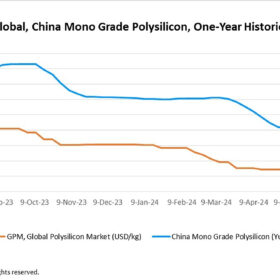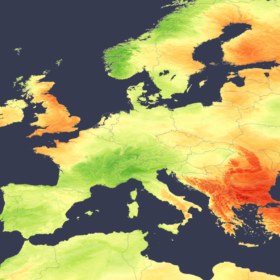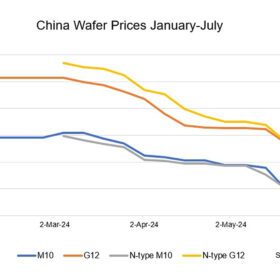Europe’s solar, storage markets on stable path, says Sungrow executive
Yang Meng, Sungrow’s director of distribution in Europe, says that despite signs of slowing demand in parts of the residential segment, Europe’s overall solar and storage markets are on a stable path, with potential for growth in the commercial and industrial storage space.
Growatt sees growth in Europe’s C&I solar, storage markets
At The Smarter E Europe event – recently held in Munich, Germany – Growatt shared insights on the European market. It reports a slowdown in the residential segment in Central Europe due to lower demand, but Growatt VP Lisa Zhang said she expects more growth in the commercial and industrial (C&I) solar and storage sectors.
‘Early in my career, I had the tendency to behave and perform like a man’
This week, Women in Solar Europe (WiSEu) gives voice to Mary Riccio-Kjærgaard, CEO and owner of Danish PV installer Risskov Teknik & Solar Aps. She explains how the idea of leadership is still being negatively influenced by cultural stereotypes and says women can accomplish more and go further by simply being “female leaders.”
Texas solar shines through Tropical Storm Beryl
In a new weekly update for pv magazine, Solcast, a DNV company, reports that the Tropical Storm Beryl caused a large but temporary dip in solar generation potential across Texas on July 8. However, cross-referencing with grid operator reports revealed that very little production went offline due to the storm, showing the resilience of Texas’ solar infrastructure.
Polysilicon prices stabilize at low levels amid market downturn
In a new weekly update for pv magazine, OPIS, a Dow Jones company, provides a quick look at the main price trends in the global PV industry.
GoodWe eyes potential of Europe’s C&I storage market
Ron Shen, vice president of power electronics manufacturer GoodWe, recently spoke to pv magazine at The smarter E Europe event in Munich, Germany, about the company’s position in the European market and its focus on the fast-growing commercial and industrial (C&I) storage segment.
‘Mobile work policies are extremely beneficial for women’
This week, Women in Solar Europe (WiSEu) gives voice to Olga Kovalchuk, Head of Finance and Investment – Managing Director at Germany’s Goldbeck Solar. She says that the underrepresentation of women in STEM subjects affects the pipeline of women entering both the renewable and traditional energy sectors, though this is gradually improving with more targeted educational initiatives. “The gender pay gap is ever-present and, given how much pay is linked to performance in senior positions, the underrepresentation has a knock-on effect on the gender pay gap for the industry,” she stated.
Weather standstill limits European solar production in June
In a new weekly update for pv magazine, Solcast, a DNV company, reports that, while in June Western Europe experienced below-average irradiance, Eastern Europe and the Balkans in particular saw a notable increase, resulting from persistent and static weather patterns.
Wafer prices stable-to-soft on weak demand
In a new weekly update for pv magazine, OPIS, a Dow Jones company, provides a quick look at the main price trends in the global PV industry.
China could lead the world to net zero
China, with an 18% share of the global population, uses 26% of the world’s primary energy and emits 33% of the world’s energy-related CO2. The energy transition unfolding in the country isn’t merely a national affair as its ramifications echo globally, explains Mahnaz Hadizadeh, a researcher for consultancy DNV.










